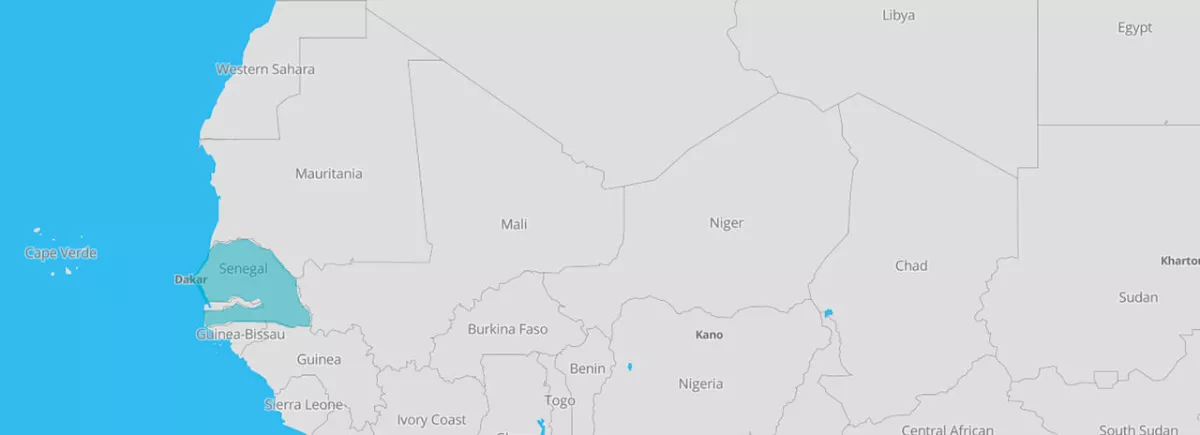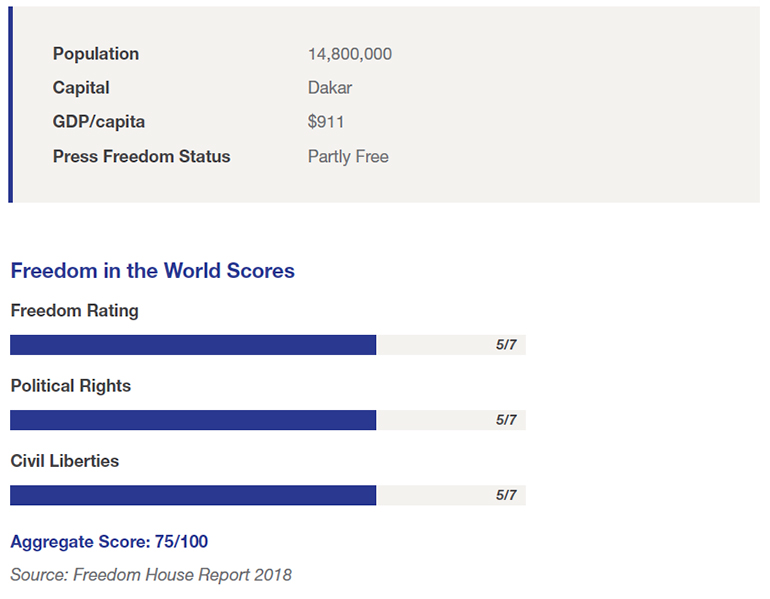
Civic tech in Africa: Senegal
This sheet proposes a synthetic presentation of civic tech in Senegal.
Connectivity
Senegal is still a leader when it comes to Internet access in West Africa. According to data from the Telecommunications and Postal Regulation Authority (
ARTP), the country has more than 10 million Internet users in 2018.
National policy
Senegal does not have a specific legislative framework for civic tech. The regulatory framework for telecommunications has evolved in recent years with the aim of increasing the population's access to
broadband services, and adapting to the regulatory provisions of the
UEMOA and the CEDEAO. This development is leading to concerns among defenders of human rights that there will be restrictions on use and increased surveillance of Internet users, masked as anti-terrorism measures.
Freedom of expression
In terms of democracy, Senegal is one of the most stable countries in West Africa. According to the
2017 Freedom House report on freedoms in the country, it has risen by three points, gaining a score of 75/100 in 2018.
History and development of civic tech in Senegal
The
Y en a marre (“We've had enough") movement, which was launched in 2011, played an important role in the 2012 presidential elections, by clearly taking a stand for the defeat of Abdoulaye Wade. In tandem with this, a group of bloggers led by Cheikh Fall launched #Sunu2012, a site that monitored the electoral campaign and the voting process. This allowed only people to monitor the electoral process, with real-time broadcasts by national and international media, thus probably limiting the temptation of fraud, when it came to counting the votes.
With Dakar, which has been in a privileged situation in terms of Internet connection in West Africa since the early 2000s, Senegal has been able to develop pioneering initiatives. For example, Senegal
is the home of
Jokkolabs, the sub-region's first coworking space, which was launched in 2010.
Although a pioneer in 2012, Senegal is no longer at the cutting edge of civic tech in 2018
Although one of the pioneering Internet countries in West Africa, Senegal's experience is now outdated. Various initiatives could have emerged over the years in a country in which the political cycles have certainly opened up more room than elsewhere, for the development of these activities. Despite its “front line" position, Senegal has not really developed any particularly noteworthy project in this area, since the public monitoring of the 2012 elections, through
#Sunu2012 and Sama Baat.
Has the country's focus on the entrepreneurial aspect of digital projects and the attraction towards the start-up model turned young people with the necessary skills towards areas of action other than
the exploration of democracy based on digital tools?



